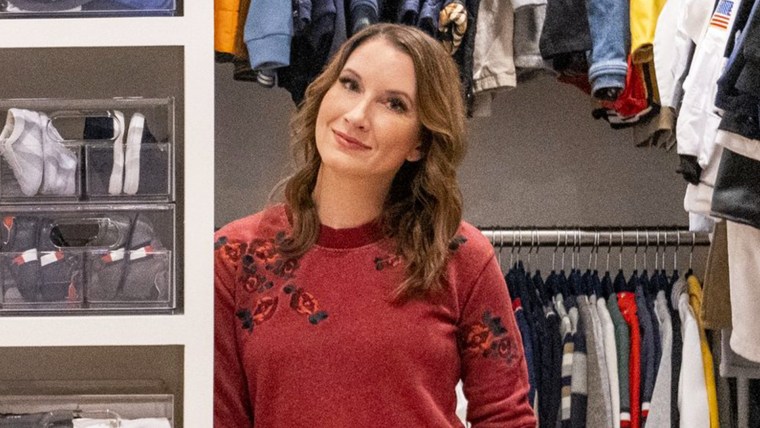How Do Women Feel 10 Years Later?
For several breast cancer individuals, the initially time they discovering about the array of treatment options out there is when they’re compelled to determine what they want for on their own. Concern and anxiousness are managing significant, and it can be complicated to know what the processes definitely require.
Now, a new analyze implies that, a decade later on, all those who decide for much less invasive remedies could ultimately sense greater about their decision in some important approaches.
The psychological impression of a mastectomy
The analyze, revealed last 7 days in JAMA Medical procedures, analyzed study outcomes for 647 individuals with early-phase breast cancer who underwent surgical treatment involving 2006 and 2008. Of individuals participants, about 356 people acquired breast-conserving surgery — also named a lumpectomy — and radiation even though 291 underwent a mastectomy with breast reconstruction.
About a decade afterwards, they crammed out the surveys, which included numerous elements of the participants’ emotions about their therapy and their system.
In accordance to the results, gals in both of those teams experienced equal scores on long-expression high quality of everyday living, “this means that sufferers have been fairly identical as far as their gratification,” examine writer Dr. Benjamin D. Smith, professor of radiation oncology and health services investigation at The College of Texas MD Anderson Most cancers Heart, told Nowadays.
But, when wanting a little bit further, scientists uncovered the two groups did differ in a couple of vital ways, he described. In unique, all those who had breast-conserving operation had better scores on steps of psychosocial well-becoming (in essence, how members feel about by themselves and their bodies supplied the consequences of the procedure they have been by means of) and sexual wellness than individuals who’d undergone mastectomies.
“This is truly the initially study which is investigated these different domains of high quality of life and uncovered that there are variations in some (features of top quality of existence) and not other people,” Smith explained. “I uncover that data very helpful when I’m visiting with individuals and counseling them about the trade-offs concerning the two distinctive procedure methods.”
The study’s concentrate on just two cure groups is equally a power and a weak point, Dr. Carlie K. Thompson, a breast cancer expert and surgeon at UCLA Wellness Jonsson Detailed Cancer Middle, explained to Today. This analyze delivers great, clean details about the two of the most frequent options for cure at early phases, but it also essentially ignores some other rarer groups, like all those who experienced a mastectomy and radiation, according to Dr. Monica Morrow, chief of the breast provider in the division of surgical procedure at Memorial Sloan Kettering Cancer Heart.
Thompson also said she wished the examine had baseline fulfillment surveys from these individuals due to the fact, at this time, there is no way to know if one team experienced a larger stage of sexual well-remaining with regards to their breasts in advance of surgical procedure, for occasion, which could have an affect on the benefits. But asking for that info is “a bit of an unrealistic want,” she added.
The most intense choice isn’t generally very best
“Breast surgeons have been troubled by the truth that, about current years, there has been this great boost in ladies who you should not medically require to have a mastectomy picking out to have a mastectomy,” Morrow instructed Now. Additionally, ladies are also progressively deciding on to have both equally breasts taken off even although they only have cancer in 1 breast, mentioned Morrow, who was not involved with the new study.
Often, sufferers will clearly show up for consultations and say, “I want them both off,” Smith recounted. “That is a very comprehensible, human response to currently being violated by owning a most cancers.”
But you can find now loads of investigation to demonstrate that eradicating both equally breasts when it is just not medically vital just isn’t probably to make improvements to long-term survival or have a drastic effects on the odds of cancer recurrence, Smith claimed. Mastectomies with reconstruction also arrive with a for a longer period, more concerned recovery time. And, as this study suggests, the treatment can have very long-time period psychosocial impacts, too.
Breast cancer patients are “choosing this for peace of brain,” Morrow reported. But these findings propose that “maybe deciding upon to have a mastectomy is not seriously conference that goal.”
Mastectomies can occur with prospective negatives that need to have to be taken into account
Based mostly on their surveys, participants in the two teams scored about the same on measures of bodily operating and pleasure with the look of their breasts. They also scored equally lower on a measure of regret, suggesting that most folks will be joyful in general with no matter what treatment they decide on, Smith said.
But all those who experienced the breast-conserving surgery ultimately had greater concentrations of psychosocial very well-remaining and sexual effectively-being than the contributors who had mastectomies with reconstruction.
A lumpectomy with radiation “unquestionably changes the texture of the breast tissue and can improve the appear of the breast tissue. But for the most part, they are not drastically impacting the sensation of the breast tissue or the nipple,” reported Thompson, who was not concerned with the new research.
But a mastectomy requires the elimination of all breast tissue, like quite a few of the nerves, Thompson defined. So, for most women, the sensation in their breast skin immediately after a mastectomy and reconstruction can be dull or absolutely numb. “I listen to girls say issues like, ‘I sense like I have alien boobs,’ or just like, ‘boobs sitting down on leading of my human body,'” Thompson mentioned.
That can impact sexual functioning, as well as a woman’s in general sense of herself and romance with her body, industry experts told Nowadays. But with a lot more research in this area, doctors and surgeons can have far more knowledgeable conversations with their people who are choosing involving these cure alternatives.
“Stunning” conclusions on race and ethnicity
The review also identified some distressing distinctions centered on patients’ race and ethnicity. Exclusively, these who determined as American Indian/Alaska Native scored decrease than all other teams in each and every dimension of extensive-term excellent of daily life. But because of the extremely small sample sizing (only 5 contributors self-determined as being component of this team), the gurus Today spoke to claimed it was not attainable to attract any big conclusions about what was going on.
Nevertheless, Morrow identified as the benefits “kind of placing,” specifically due to the fact they have been statistically significant even with these kinds of a compact sample. Smith agreed that the locating was “shocking” and “very tragic,” and additional that it’s “consistent with literature suggesting that American Indian individuals practical experience a a lot better hazard of adverse wellness results across the total overall health treatment continuum.”
Earlier analysis has also demonstrated that women of shade experience quite a few hurdles in accessing top quality well being care, Thompson explained. That can all direct to worse outcomes for extended-time period properly-currently being and survival.
Genuine, proof-dependent conversations aid guide individuals
The information in the study can enable providers approach clients with evidence when talking about procedure choices Morrow prompt indicating something like, “Studies in women like you have shown that, in the lengthy phrase, their over-all excellent of life is not superior by obtaining their breasts removed. And there are a ton of other quick-expression trade-offs that we know are even worse.”
Smith described that the oncology subject broadly understands that “the much less surgical treatment and the less radiation that you have to take care of your breast most cancers, the greater your prolonged-expression top quality of daily life will be.” But you want to balance that with the truth that you nonetheless require sufficient cure for it to truly be helpful, he included. He and his group are now working on building visual resources primarily based on the new results to aid clients building these massive choices.
As Thompson set it, “We as doctors want to do what is going to be safest for the patient from an oncologic perspective. But when you get past that, it gets considerably extra nuanced.”
The hope is that exploration like this allows sufferers kind out what is actually essential to their particular person quality of lifestyle as they go by way of treatment and beyond — and how they can get the job done with doctors to realize that.


